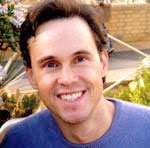
Today is the start of a new eight-week happiness course, called
Be Happy. Over the next two months, a group of approximately fifty people will gather in Central London to participate in a journey that will explore one of life’s most cherished and elusive goals - happiness. This year, one of the major themes we will investigate is, giving up the search for happiness.
I wonder, has it ever occurred to you that the search for happiness can be a major block to happiness? In the beginning, the search for happiness seems honest enough. However, I would ask you, how long do you really need to search for? One week? One month? One more year? One more workshop? My first spiritual mentor, an Indian yogi and philosopher, insisted that the search for happiness can be over in the blink of an eye, if, that is, you accept you are what we seek.
How exactly might the search for happiness be a block to happiness? Here are five insights for you to consider.
1. Outside You: The search for happiness arises from the erroneous belief that happiness is outside you. This displacement takes happiness away from its proper place, just as the search for happiness also takes you away from yourself. Happiness is not outside you. Until you accept that happiness is your true nature you will keep searching for happiness in all the wrong places.
2. Not Here: The search for happiness conditions you to think that happiness is somewhere else other than where you are right now. Mistakenly, you believe that happiness is a destination, and a place to get to. This causes you to race through your life so as to get to happiness. In an effort to get to some sacred place you overlook the beautiful ordinary, and you fail to see what is here already. Your searching is a form of blindness.
3. Not Now: The search for happiness implies that happiness is in the future, and not now. Mistakenly, you put all of your efforts into a happy future that is apparently on its way. Meanwhile, you live in the not-now. You use all of your “nows” as stepping stones to get you to the next moment, and the next. You have no time to be happy, right now. You hope to be happy soon, but your future ends up being the same as what you are doing now.
4. To Objectify: If you believe that happiness is outside of you, you can’t help but objectify happiness. This means you end up defining happiness as an “it” or a “thing” that exists in other places and in other people. This objectification encourages you to go shopping for happiness. Instead of being happy, you try to have happiness by attracting it, catching it, buying it, and keeping it. True happiness is not another coffee machine!
5. To Find: The search for happiness can be never-ending because searching is not the same as finding. At some point on your life-journey, you have to be willing to stop being a searcher, and be a finder. For example, instead of searching for love, find out how loving you can be. And, instead of searching for your purpose, choose one. And, instead of seeking after happiness, find within yourself a willingness and openness to be happy now, and to share your happiness with the world.
Ironically, it’s only when you give up the search for happiness that you actually find happiness. So, just for today, try this simple experiment. Make it your intention to find happiness today. Stop and recognize your true nature. Appreciate where you are right here. Enjoy this moment right now. Choose to be instead of to have. And be willing to see that happiness cannot be found in the world until you are willing to share it first.







